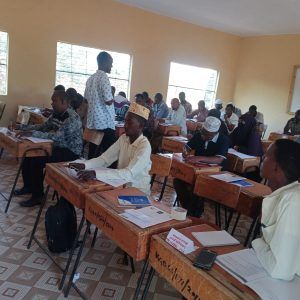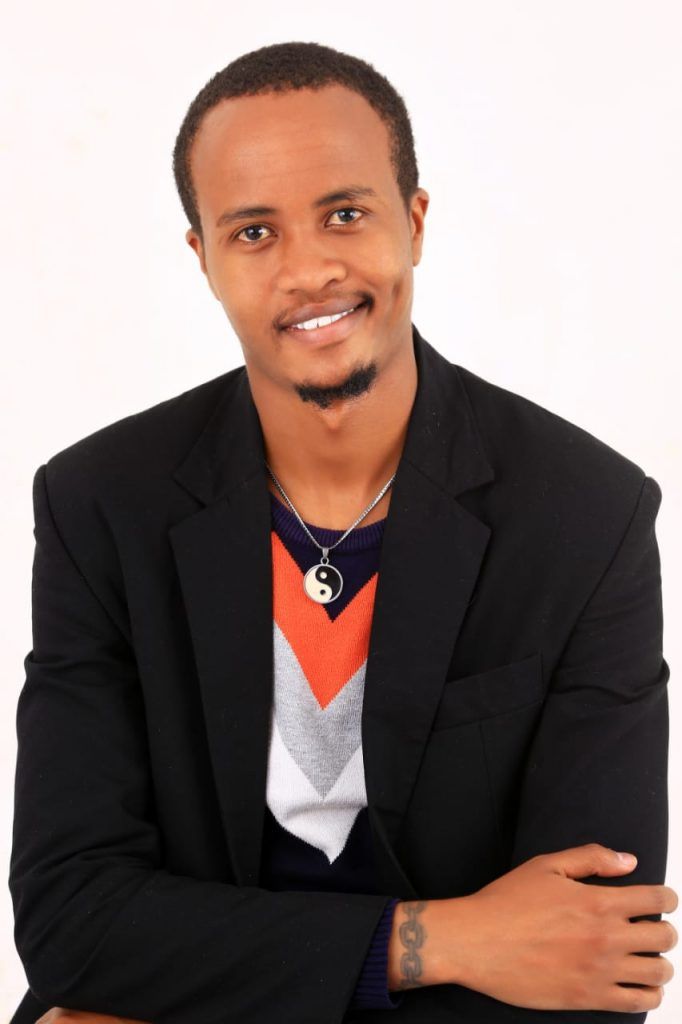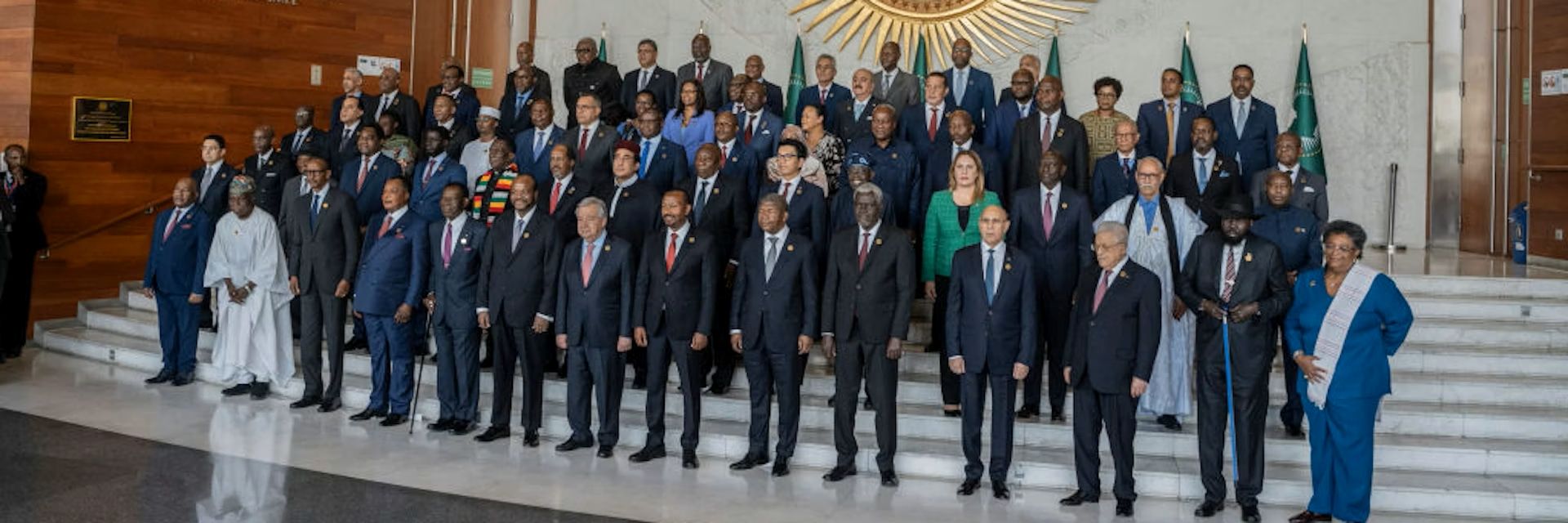Let's talk about life skills and values.
In 2017, Kenya's education saw the rolling out of a new curriculum, the competency-based curriculum (CBC) that ended the era of the 8-4-4 system. The new system introduced an interactive learning experience that would produce better learners equipped with life skills and values.
While various debates as to whether the country was ready or not for the new curriculum arose, the government maintained that it would go ahead with CBC and ensure our children are taught key values and skills, including:
1. communication and collaboration
2. critical thinking and problem-solving
3. imagination and creativity
4. citizenship
5. learning to learn
6. self-efficacy
7. digital literacy
The question then becomes, how can we assess these life skills and values?
A nationwide assessment
At the time of writing, a team of qualified and well-equipped men and women from various professional backgrounds is on the ground in Kenya's several counties, collecting data that will aid in the assessment of essential values and life skills in adolescents.
The purpose is clear—to assess over 20000 adolescents between the ages of 13 and 17 years, in 20 counties strategically handpicked by the Kenya Bureau of Statistics, the Sampling Department.
The key values and skills they look to hold under an investigative lens, and with a surgeon’s precision to assess in these kids, are—collaboration, problem-solving, self-awareness, and respect. Two of these are included in Kenya's recently adopted curriculum's seven core competencies (Competency-Based Curriculum).
The team is well organized, moving from household to household, and collecting data through a locally tailored and contextualised tool. The idea to take the survey to households as opposed to schools (where one would argue would be the best setup to find these adolescents) was nothing if not a calculated move. They needed to see and also assess the role of parents and the surrounding community in nurturing values and life skills in the adolescents they raise.
Another pertinent question comes in; the question of WHY? Why this assessment, why now, and who are the people behind it?
These questions bring us to the story behind the story, which to get, I had a talk with Dr Purity Ngina, the Evidence Manager at Zizi Afrique Foundation.
Founded in 2018, Zizi Afrique Foundation pledges a commitment to improving learning outcomes for children and youth furthest behind.
70 organizations come together for a cause
In 2018, 70 organizations converged at a table to deliberate on an issue that proved urgent. These organizations came from Kenya, Uganda, and Tanzania. A gap in education matters had spawned the matter of discussion at the centre of the convening. So, the Regional Education Learning Initiative in East Africa (RELI) was birthed.
The members divided themselves into three thematic clusters; Values and Life Skills, Learner-centered, and Equity and Inclusion. Dr Purity Ngina, whose organization Zizi Afrique is part of the founding organizations of RELI, belongs to the Values and Life Skills cluster.
ALiVE (Assessment of Values and Life Skills in East Africa)
“For the ALiVE project, Dr John Mugo—the Executive Manager at Zizi Afrique, is the Principal Investigator; the overall regional thought leader and the Country lead in Kenya. In Uganda, the leader is Mauro Giacomaizi from Luigi Giussani Institute of Higher Education; while in Tanzania, the leader is Khadija Sharif from Milele Zanzibar", Dr Purity Ngina told me.
Feel proud to be working with great people, learning how to measure life skills @alive_programme pic.twitter.com/iR7brb4KvH
— John Mugo (@JKabuthaMugo) March 23, 2022
AliVE is a collaborative project in each of the three countries.
Three questions led them to crochet a project they aptly brand AliVE (Assessment of Values and Life Skills in East Africa). The questions were: What are the competencies adolescents need to have? How can these competencies be assessed? And, what needs to be done to nurture these competencies?
“The good thing with starting with the assessment is that you end up identifying the gap or gaps,” said Dr Ngina, whose passion for uplifting the youth through values and life skills is unmistakable and unwavering.
Contextualising a measurement tool
Globally, widely-used tools of measurement have been a constant in many assessments. It’s as if many researchers resigned themselves to using formerly proven templates and tools. But not for the ALiVE team.
For the important task at hand, they needed rigorous preparation to ensure that their assessment was effective and accurate by local standards, capturing the reality on the ground. That way, their findings would have a real and confident voice while speaking to inform policymakers in the education sector.
“In the year 2020 after the project was inaugurated,” Dr Ngina narrates, “we made a decision to contextualise our assessment tool. We undertook a study in 15 Districts in each country—that is Kenya, Uganda, and Tanzania. We captured the voice of over 350 adolescents, 100 teachers and parents through interviews and focus group discussions.”
For this far-reaching study, the team interviewed adolescents to find out their knowledge of what these key values and life skills mean to them. They asked them, for example, ‘How do you define problem-solving? How do you tell that an adolescent has problem-solving skills?’ The team also asked these questions to parents, community leaders, and any other person(s) working with adolescents. The goal was to first grasp the understanding of adolescents when it comes to defining these values and skills.
“We also did numerous interviews and intensive literature review to check the global space and view things from that angle, too. By January 2021, we had the information we needed and proceeded to bring together a team of 47 experts to go through the information and develop the assessment tool,” explained Dr Ngina.
A healthy balance of professionals
The team of 47 members boasted a healthy balance of professionals; including psychologists, education experts, academia, youth representatives, officers from KNEC (Kenya National Examination Council), officers from Kenya Institute of Curriculum Development (KICD), and even musicians.
I wanted to know why it was important to bring in musicians and other creatives from the Kenya National Theatre. Dr Ngina had an answer. “The new curriculum, CBC, hoists creativity as one of the values at the centre of learning. It was vital that we also get the views and input of creatives in the development of our assessment tool.”
The team also brought in a facilitator from Australia—Professor Esther Care whose work in different parts of the world developing assessment tools is impeccable.
In April 2021, workshops kicked off, with every team (Kenya, Uganda, Tanzania) meeting in their countries. By June, the assessing framework was ready for pre-testing.
Pre-testing and the final pilot of the assessment tool
“We pre-tested in 10 districts in the three countries, gaining insight on what worked and what did not. The distribution was; 4 Districts in Kenya, 4 in Uganda, and 2 in Tanzania. The four Districts in Kenya were Kiambu, Narok, Nairobi, and Busia. We then revised the tool and piloted it, again, in October in Baringo (East Pokot), Nairobi (Mukuru Slums), Busia (Nabale), and Kwale (Msambweni) Counties. The data collected was analysed. Consequently, more revisions on the tools and tasks were done” Dr Purity Ngina told me.
On the 22nd of February 2022, the team did a final pilot— what they considered the dry run. They chose Tharakanithi County, Igamba Ng’ombe Sub-county, for this dry run. During the last pilot, they invited teams from Uganda and Tanzania, and Professor Esther Care also travelled from Australia to attend this event.
Bringing in trainee teachers
For the first time in their projects, they decided to use teacher trainees from teacher training colleges as data collectors instead of volunteers. Dr Ngina explains, “We chose to work with teacher trainees because the values and life skills we are assessing are in line with CBC, and most of these trainees, in a few years, will be the teachers of our children. They will use the knowledge gained to support our children and support the implementation of CBC.”
The trainees were from St. Marks Kigali Teachers Training College. When this arrangement worked well, the team decided to move forward with it. In every county that they visit, they will work with trainees from the local public teachers' training colleges.
The tool was satisfactorily validated. The team was declared ready to undertake a national assessment in 20 counties in Kenya, targeting 40 enumeration areas. Ideally, a total of 800 households and around 1200 adolescents in each county.
Day 2 of the ALiVE- Kenya national assessors training continues. We have partnered with 15 TTCs and will engage over 800 teacher trainees for data collection.This is in supporting the CBC implementation as well as creating awareness on its core-competences. #LifeSkillsAssessment pic.twitter.com/yXl8ysmRP1
— Assessment of Lifeskills and Values in East Africa (@alive_programme) April 5, 2022
Preparation for the assessment that seeks to inform policy-making decisions
Before kicking off the real assessment in the 20 selected counties (Taita Taveta, Tana River, Mombasa, Makueni, Nairobi, Murang’a, Nyeri, Tharaka Nithi, Marsabit, Mandera, Wajir, Samburu, Turkana, Nakuru, Narok, Uasin Gishu, Nyamira, Kakamega, Bungoma, Kisumu), that will take part in the national assessments, the team visited the County Directors of Education in each of the counties to let them know that they are coming. They also visited the County Commissioners and went down that power ladder— to the Deputy County Commissioners, the Chiefs— and then they were assigned Village Elders to help them inform the communities about the household-to-household assessment that would take place.
The unique tool of assessment
To test creativity and have a finger on the pulse of the thought processes of these adolescents, the assessment tool has interesting questions. Dr Purity Ngina gave an example using one of the questions testing problem-solving skills.
Fire has broken out in your house;
i) Can you explain how this is a problem or can you explain how this is not a problem?
After the respondent answers that it is a problem, the second part comes,
ii) If you are asked to solve this problem, what else do you need to know about it?
These sorts of questions give room for imagination; which is very important because it gives learners the opportunity to think up solutions. While a painter adds (paint) to his canvas, a sculptor chips away from a stone or a piece of wood. Both end up with a masterpiece. It is important that we allow learners to explore different approaches and unleash their creativity.
To mitigate language barrier challenges, the tool has translated the questions to all local languages spoken in the enumeration areas they conduct the assessment. Working with locals in this project ensures they have someone to read the translated questions in the local dialects.
Our trainers and coordinators in Kisumu are upbeat as they start the county assessors training running from Today to Thursday. This is in preparation for our ALiVE national assessment. #TeamALiVE #ALiVEKenya #LifeskillsAsssessment pic.twitter.com/60LcvP0bh4
— Assessment of Lifeskills and Values in East Africa (@alive_programme) March 29, 2022
We live in the information age
There’s no doubt that we live in an age where information is a currency we can’t afford to ignore. It would be dangerous if our policymakers sat in their high offices and crafted policies without clear insights into the situation on the ground, and the rocket fuel needed to fly our country to new, greater heights. Intensive projects like ALiVE descend like guardian angels to ensure our policymakers have the right information that will guide them when they converge to drop cards that will shape our country and the world at large.
***
Dr. Purity Ngina has previously written personal essays in a series called "Lessons From My Mama" and she has also been featured on Qazini. Read the articles here.





